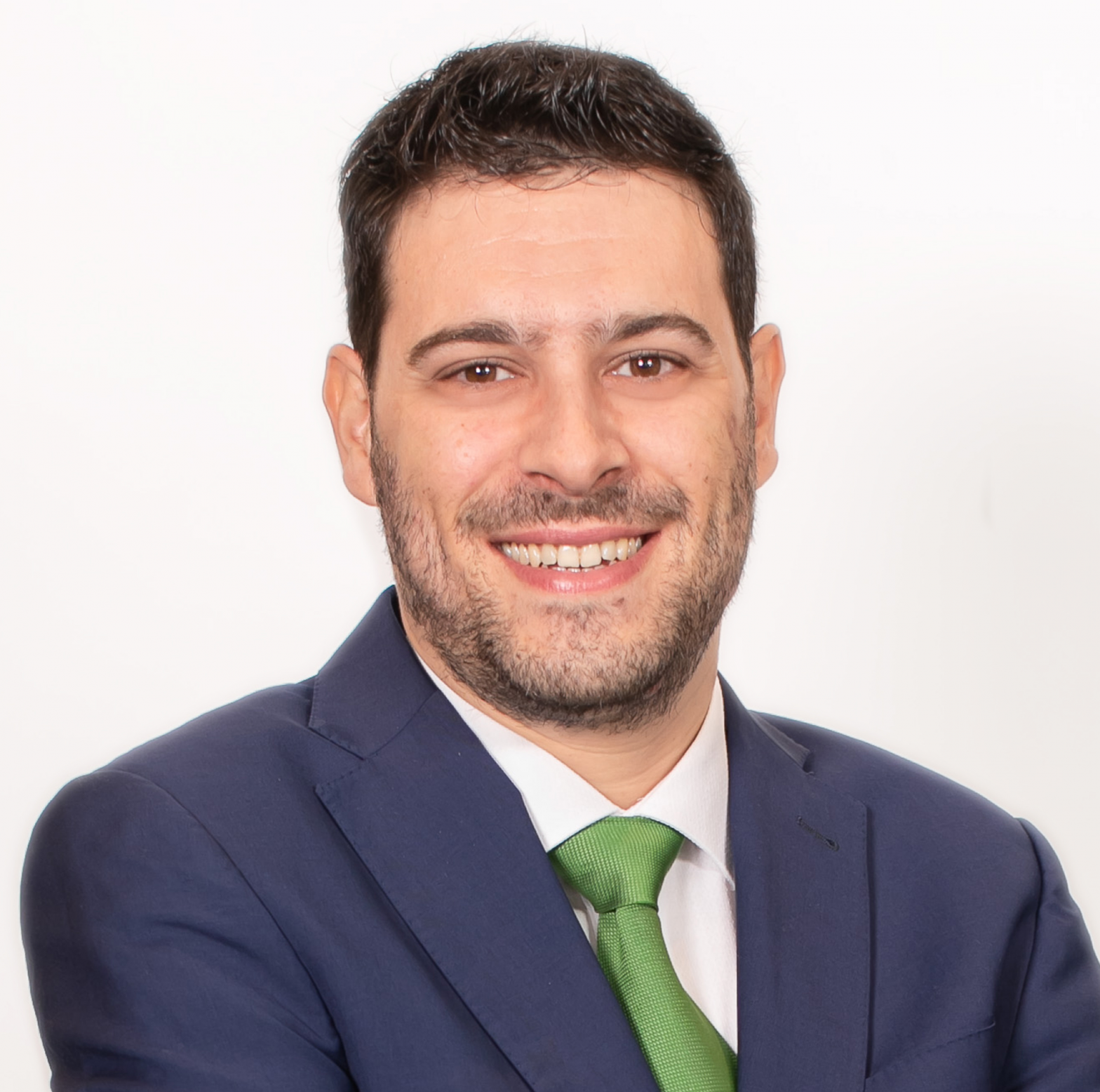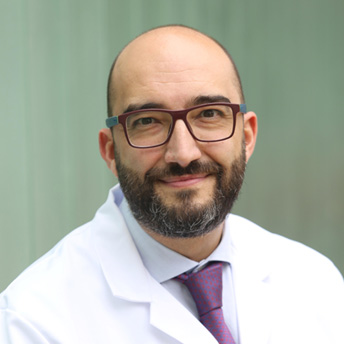
Expert Interview 2: Frequently Asked Questions (FAQs) for Muscle-Invasive Bladder Cancer (MIBC)
Release date: 04-12-2023
Expiration date: 04-12-2024
Muscle-Invasive Bladder Cancer (MIBC) is defined as the tumor has spread through the bladder lining and into the bladder muscle. Optimal treatment strategies for MIBC requires the involvement of a specialist multidisciplinary team (MDT), with collaboration between surgeons, medical oncologists, radiation oncologists, pathologists and other specialists.
Bladder preservation is an alternative to cystectomy for patients deemed unfit for surgery. The MDT board should develop a treatment strategy tailored to meet the needs of patients seeking bladder preservation. The management of locally advanced operable bladder cancer and the role of pre and postoperative systemic treatments have become increasingly intricate. Neoadjuvant cisplatin-based chemotherapy has been the standard of care for some years. Adjuvant immunotherapy has now emerged as a new standard of care for postoperative patients with high risks. Nonetheless, there remain gaps that need to be addressed for practicing oncologists to gain an in-depth understanding of individualized treatment strategies for MIBC.
Let's watch the recorded video on 'Frequently Asked Questions (FAQs) for MIBC' to gain comprehensive insights from leading experts – Dr. Francisco X. Real from National Cancer Research Center of Spain, Dr. Félix Guerrero Ramos from Hospital Universitario 12 de Octubre in Madrid, Dr. Natalia Carballo and Dr. Enrique Grande from MD Anderson Cancer Center Madrid.
This program is available with subtitles in the following languages:

Faculty

Francisco X. Real, MD, PhD
National Cancer Research Center
Madrid, Spain
Francisco X. Real (Paco) has been Professor of Cell Biology at Universitat Pompeu Fabra, Barcelona, Spain, since 2004, and he has also worked at Spanish National Cancer Research Center (CNIO), Madrid, Spain, since 2007. He obtained his MD from the Universitat Autònoma de Barcelona in 1980 and his PhD in 1986. He trained in Medical Oncology at Memorial Hospital in New York where he was a Staff Physician from 1986 to 1988. He carried out his doctoral and postdoctoral work in the laboratory of Lloyd J. Old at Memorial Sloan-Kettering Cancer Center. His work focused on the development of immunological strategies for the treatment of melanoma and epithelial cancers. In 1988, he joined the Institut Municipal d'Investigació Mèdica, Barcelona, where he focused on the cell and molecular biology of epithelial cancers. He was also involved in setting up the Biomedical Sciences studies at Universitat Pompeu Fabra.
At CNIO, Professor Real's group has made significant contributions to the molecular mechanisms involved in pancreatic cancer and in pancreatitis and the molecular pathology and epidemiology of bladder and pancreas cancer. His work combines the use of patient samples, cultured cells, and genetically modified mice, giving a similar relevance to all of them. One important aim of the group’s work is to bring the fundamental knowledge generated in the laboratory to an improved understanding of disease and to develop improved strategies for prevention, early diagnosis, and treatment of pancreatic and bladder cancer.
Professor Real has published more than 300 original papers and his work has been published in Nature, Nature Genetics, Nature Cell Biology, Nature Communications, Nature Reviews Cancer, Gut, Gastroenterology, PNAS, JNCI, J Clin Invest, N Engl J Med, and Lancet, among others. He has received more than 29,000 citations (Google Scholar); his H index is 96. He is a member of the Scientific Advisory Board of several institutions including the Discovery Research Committee of Cancer Research UK (London), Centre de Recherche des Cordeliers (Paris), CARPEM (Paris), Pancreatic Cancer Research UK (London), and Fonds National de la Recherche Scientifique (Brussels). He is an Associate Editor of Gut and Bladder Cancer. In 2015, he was President of the European Pancreatic Club.

Félix Guerrero-Ramos, MD, PhD, FEBU
Hospital Doce de Octubre
Madrid, Spain
Félix Guerrero-Ramos co-leads the Oncological Urology section at Hospital Universitario 12 de Octubre in Madrid, Spain, where he also performs several surgeries as a staff urologist. He is a Residency Programme Director at Hospital Universitario 12 de Octubre and also collaborates as an academic tutor for final year students from Universidad Complutense de Madrid (School of Medicine). In addition, Dr. Guerrero-Ramos is adjunct Professor of Medicine at CEU San Pablo University. He also has a private practice as the Head of the Oncological Urology Unit at HM Hospitales and ROC Clinic in Madrid.
Dr. Guerrero-Ramos obtained his MD from Universidad Autónoma de Madrid in 2008, followed by training as a urologist at Hospital Universitario 12 de Octubre. During his residency period, he completed an observership at University College Hospital in London, UK. He gained his fellowship from the European Board of Urology in Brussels, Belgium, in June 2014 and his PhD from Universidad Complutense de Madrid in December 2015 with a distinction “cum laude”; his doctoral thesis was titled “Comparative analysis of surgical complications in a programme of uncontrolled DCD kidney donation under normothermic preservation.”
Dr. Guerrero-Ramos’ research is mainly focused on urological oncology (especially bladder and kidney cancer). He is the Principal Investigator for several phase I/II/III trials in urothelial and renal cancer. He has been an invited speaker for national and international meetings and has also been the organizer and director of several courses, mainly focused on urothelial and renal cancer. He is the author or coauthor of over 45 scientific articles in peer-reviewed journals, over 100 communications in several worldwide congresses, and 12 book chapters.

Natalia Carballo, MD
Sanitas Hospitals/Atrys Health
Madrid, Spain
Natalia Carballo is the current Program Director of Radiation Oncology at Sanitas Hospitals/Atrys Health. She was the Head of Radiation Oncology at the MD Anderson Cancer Center in Madrid, Spain, and also served as an Associate Professor of Radiation Oncology at MD Anderson in Houston, Texas, USA, as well as at Universidad Francisco de Vitoria in Madrid.
Dr. Carballo specializes in thoracic and gastrointestinal oncology and has a particular interest in advanced techniques, including radiosurgery, extreme hypofractionation, and the deep inspiration breath-hold (DIBH) technique. She is the Principal Investigator for the National Cancer Institute’s (NCI) international program “Cancer Moonshot Screening in Lung Cancer Research” and was the local organizer of the European Society for Radiotherapy and Oncology (ESTRO) 2021 congress in Madrid. Dr. Carballo is also involved with several Spanish professional boards and is recognized as an opinion leader in radiotherapy.

Enrique Grande, MD, MSc, PhD | Chair
Quirónsalud Madrid
Madrid, Spain
Enrique Grande is the current Director of the Cancer Program at Quirónsalud in Madrid, Spain. He was the Director of the Medical Oncology Program at MD Anderson Cancer Center in Madrid, Spain, and also served as an Adjunct Professor at The Univercity of Texas MD Anderson Cancer Center in Houston, USA. Dr. Grande focuses on research into genitourinary tumors and is actively involved in the development of the Translational Research and Early Drug Development Unit. Dr. Grande earned his PhD for a pharmacokinetic and pharmacodynamic study of tyrosine kinase inhibitors in liver metabolism, and he holds a master’s degree in the molecular biology of cancer from the Spanish National Cancer Research Center (CNIO). A published author of more than 200 manuscripts in peer-reviewed journals, Dr. Grande is also the founder of the Spanish Group for Research on Orphan and Uncommon Tumors (GETHI). Dr. Grande is an editor of several international journals and has edited a range of books related to oncology. He has participated in the most recent clinical trials in the field of genitourinary and neuroendocrine tumors that led to the approval of the new drugs now available.
This activity is design designed for medical oncologists and urologists involved or interested in the management of urothelial cancer.
The aim of this educational activity is for participants to:
- Become familiar with the indications and limitations of local treatments for MIBC
- Establish confidence in the selection of optimal strategies for bladder preservation and neoadjuvant/adjuvant treatment through MDT approach
This educational activity is provided by ACE Oncology.
This educational activity is supported by an independent grant from the Healthcare business of Merck KGaA, Darmstadt, Germany.
This activity provides content that is evidence-based, balanced, and free of commercial bias, with a primary objective to improve competence and performance of learners in order to improve patient care.
The faculty reported the following financial relationships or relationships to products or devices they or their spouses/life partners have with commercial interest related to the content of this activity:
Enrique Grande has received honoraria for speaker engagements, advisory roles or funding for continuing medical education from Advanced Accelerator Applications, AMGEN, Angelini, Astellas, Astra Zeneca, Bayer, Blueprint, Bristol Myers Squibb, Caris Life Sciences, Celgene, Clovis-Oncology, Dr. Reddy’s, Eisai, Esteve, Eusa Pharma, Genetracer, GSK, Guardant Health, HRAPharma, IPSEN, ITM-Radiopharma, Janssen, Lexicon, Lilly, Merck KGaA, MSD, Nanostring Technologies, Natera, Novartis, ONCODNA (Biosequence), Palex, Pharmamar, Pierre Fabre, Pfizer, Raffo, Roche, Sanofi-Genzyme, Servier, Taiho, Tecnofarma, Thermo Fisher Scientific and Zodiac. He has also received grants for clinical research from Astellas, Astra Zeneca, IPSEN, Lexicon, Merck KGaA, MTEM/Threshold/Tersera, Nanostring Technologies, Pfizer and Roche. He has agreed to disclose any unlabeled/unapproved uses of drugs or products referenced in his presentation.
Félix Guerrero has served as an advisor or consultant for Pfizer, BMS, AstraZeneca, Janssen and Combat Medical. He has also served as a speaker or a member of a speakers bureau for Astellas Oncology, Janssen, Pfizer, AstraZeneca, Combat Medical and Nucleix. He has agreed to disclose any unlabeled/unapproved uses of drugs or products referenced in his presentation.
Francisco X. Real has received grants for research from VCN Biosciences and Janssen. He has agreed to disclose any unlabeled/unapproved uses of drugs or products referenced in his presentation.
Natalia Carballo has no financial relationships to disclose. She has agreed to disclose any unlabeled/unapproved uses of drugs or products referenced in her presentation.
The employees of ACE Oncology have disclosed no relevant financial relationships.
ACE Oncology requires instructors, planners, managers, and other individuals who are in a position to control the content of this activity to disclose any real or apparent conflict of interest (COI) they may have as related to the content of this activity. All identified COIs are thoroughly vetted and resolved according to ACE Oncology’s policy. ACE Oncology is committed to providing its learners with high-quality activities and related materials that promote improvements or quality in healthcare and not a specific proprietary business interest of a commercial entity.
